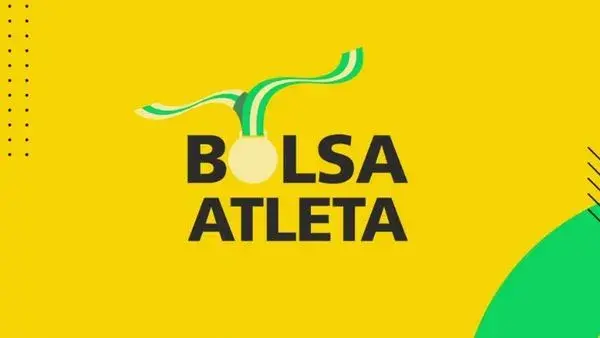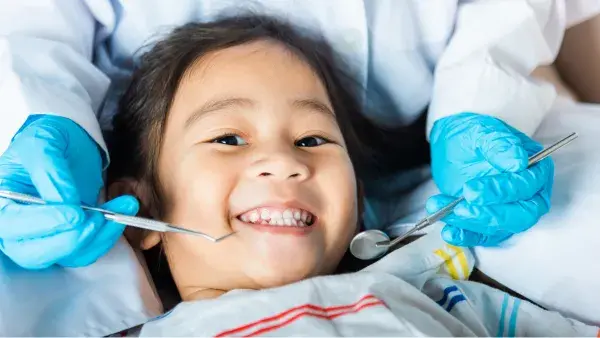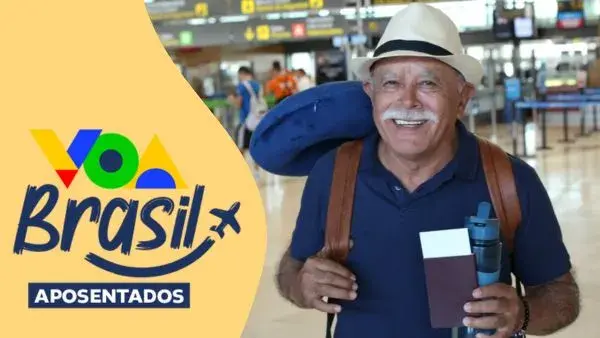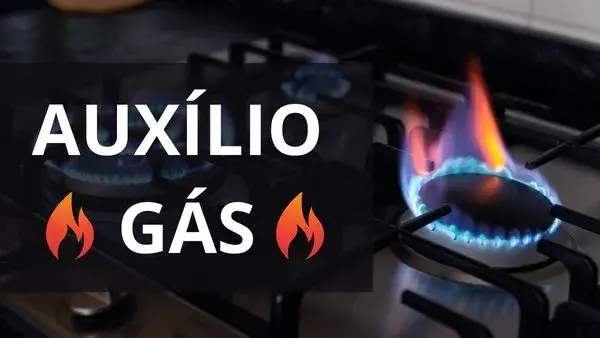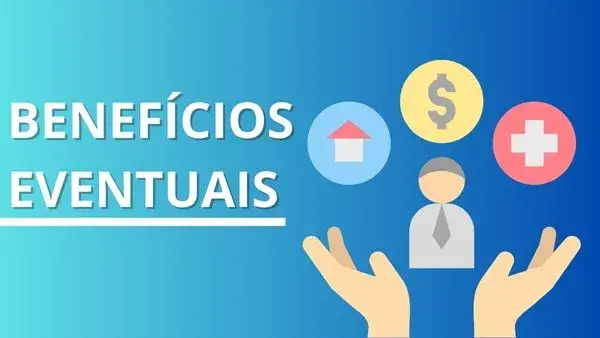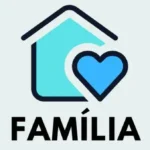Discover how social benefits for families can transform lives, promote inclusion and improve your family's quality of life!
Adverts
Social benefits for families play an essential role in promoting dignity and quality of life for millions of Brazilians.
Created to support those in situations of social and economic vulnerability, these programmes cover a wide range of fundamental needs, including housing, food, health and education.
With initiatives ranging from subsidies for the purchase of food and cooking gas to assistance programmes for mothers, the elderly and people with disabilities, the government aims to reduce inequalities and offer sustainable development opportunities for all families.
Adverts
In addition, many of these benefits meet emergency needs, such as disaster relief and temporary support for families in financial crisis.
In rural areas, specific programmes strengthen family farming, encourage sustainable practices and promote food security in isolated communities.
These initiatives also seek to integrate traditional populations such as indigenous peoples and quilombolas, ensuring that everyone has access to social rights and opportunities for a better life.
See the list of available benefits and find out if you're entitled to any of them!
Quick Index:
My House My Life
The Minha Casa Minha Vida programme facilitates access to housing for low-income families by offering subsidies and financing conditions.
Divided into income brackets, it allows people on lower incomes to buy their own property, with the government covering part of the cost. The programme also benefits the construction sector, creating jobs and developing infrastructure in less favoured regions.
In its new phase, Minha Casa Minha Vida prioritises sustainability, encouraging construction that respects the environment and offering homes in locations with access to essential services.
This initiative is essential to combat the housing deficit and promote quality of life for vulnerable families.
Fly Brazil
Voa Brasil seeks to democratise access to air transport by offering affordable tickets to low-income families.
With subsidies and partnerships with airlines, the programme reduces costs, allowing people in isolated regions to travel more easily.
The initiative also stimulates tourism in less accessible locations and boosts the local economy by generating job opportunities.
In addition, Voa Brasil promotes social inclusion by making air transport more accessible, allowing families to visit relatives and make journeys that were previously unaffordable. The programme thus plays an important role in regional integration and development.
Eventual Benefits
Eventual Benefits are temporary aid for families in emergency situations, such as natural disasters or economic crises.
This aid offers financial or material support, including food baskets, hygiene materials, clothing and even financial help in critical cases.
Assistance is decentralised and adapted to the needs of each municipality, enabling a rapid and effective response.
As well as dealing with emergencies, the programme complements the Unified Social Assistance System (SUAS), helping families to access other support services after the emergency period.
With this, the Eventual Benefits guarantee essential support in times of greater vulnerability.
Gas Aid (PAGB)
Gas Aid helps low-income families pay for cooking gas, which is essential for preparing food.
Paid bimonthly, funds from the Brazilian Gas Aid Programme (PAGB) help families registered with CadÚnico or receiving the Continuous Cash Benefit (BPC).
The programme relieves the household budget in the midst of rising gas prices, ensuring that families can maintain regular consumption.
The benefit is especially important for the rural population, where access to gas can be more difficult, contributing to food security and quality of life. This assistance is crucial to prevent families from going without a basic resource for their subsistence.
Single Registry (CadÚnico)
The Unified Registry (CadÚnico) is a database that records socio-economic information on low-income families in Brazil.
This system allows the government to identify those in need of social benefits, such as Bolsa Família and Auxílio Gás.
Registration with CadÚnico is free and is done at the Social Assistance Reference Centres (CRAS), and must be updated periodically to ensure eligibility.
By centralising family information, CadÚnico helps to create and implement more effective public policies aimed at redistributing income and fighting poverty.
This register is a fundamental tool for implementing initiatives that reduce inequalities and improve the population's quality of life.
*You will be redirected to another site.
Bolsa Família (PBF)
Bolsa Família is a cash transfer programme aimed at families in vulnerable situations, with the aim of fighting poverty and promoting social inclusion.
Eligible families receive a monthly grant to help buy food, medicines and other essential items.
This benefit also requires families to fulfil certain conditions, such as keeping children in school and vaccinated, encouraging improvements in education and health.
The programme is one of the biggest income redistribution initiatives in Brazil, helping to reduce inequalities and promote quality of life for millions of Brazilians.
In addition, Bolsa Família plays an important role in the local economy, boosting commerce in the communities.
*You will be redirected to another site.
Maternity Pay (Urban)
The Urban Maternity Allowance is intended for workers who live and work in urban areas, including registered employees, self-employed workers and optional Social Security contributors.
This benefit provides a substitute income during the maternity leave period, ensuring that the mother has financial support while caring for her newborn.
To be entitled to the benefit, the worker must have contributed to the Social Security system for a minimum period, which varies according to the category of contribution.
Urban maternity pay encourages family ties and ensures financial stability, contributing to the well-being of both mother and baby.
In addition, this benefit reinforces the protection of women's labour and social rights in urban areas.
*You will be redirected to another site.
Maternity Pay (Rural)
The Rural Maternity Allowance is intended for workers who work in agriculture, fishing or activities in rural areas, many of whom are special Social Security insured.
Unlike urban workers, special insured women, such as farmers and fisherwomen, do not need to make regular monthly contributions to receive the benefit, as long as they prove rural activity for a minimum waiting period, usually 10 months.
This aid is essential to guarantee income during maternity leave, allowing the mother to devote time to caring for the baby without jeopardising the family's livelihood.
The benefit strengthens support for rural women workers, promoting social inclusion and equal rights for urban and rural women.
*You will be redirected to another site.
Cisterns Programme
The Cisterns Programme was created to combat water scarcity in semi-arid regions, especially in the north-east of Brazil, where access to drinking water is limited.
The initiative builds cisterns to capture and store rainwater, benefiting thousands of rural families who previously had to walk long distances to get water.
With cisterns, these communities can guarantee water for domestic consumption and irrigation, which improves health conditions and encourages family farming.
The programme also promotes sustainable development by training local residents to maintain the cisterns.
The Cisterns Programme thus contributes to water security and improving the quality of life in vulnerable areas.
*You will be redirected to another site.
Green bag
Bolsa Verde is a programme that offers financial incentives to families who live in environmentally preserved areas and adopt sustainable practices.
The initiative aims to protect the environment and promote sustainable development in rural communities, mainly in the Amazon and in environmental preservation areas.
Participating families receive a quarterly grant in exchange for their commitment to preserve natural resources and prevent deforestation.
As well as guaranteeing a source of income for these families, the programme contributes to the conservation of biodiversity and the maintenance of essential ecosystems.
With Bolsa Verde, the government promotes practices that combine sustainability and social inclusion, benefiting communities and the environment.
*You will be redirected to another site.
Conta gov.br
The gov.br account is a digital identity that allows citizens to access government digital services in a secure and simplified way.
With a single account, users can carry out various activities online, such as checking benefits, accessing My INSS, and signing up for social programmes, eliminating the need for physical documents.
This initiative makes life easier for citizens and makes services more accessible, especially for those living in remote areas.
The gov.br account is an important step forward in the digital transformation of public services, allowing citizens to have quick and efficient access to government information and services, reducing bureaucracy and improving interaction with the public sector.
*You will be redirected to another site.
Basic Social Protection
Basic Social Protection offers support and assistance services to families in situations of vulnerability, guaranteeing access to social centres, guidance and educational activities.
This programme is implemented through the Social Assistance Reference Centres (CRAS), where families find support to improve their living conditions.
Basic Social Protection aims to strengthen family ties and prevent risk situations such as abandonment and violence.
The services provided include socialisation activities, training courses and guidance on rights.
With this, the programme contributes to strengthening the community and promotes social inclusion, helping families to overcome situations of vulnerability.
*You will be redirected to another site.
Indigenous Access to the Unified Social Assistance System (SUAS)
This programme aims to ensure that indigenous communities have access to the social assistance services of the Unified Social Assistance System (SUAS).
The aim is to offer support in situations of social vulnerability, strengthening basic rights and promoting inclusion.
The assistance includes guidance on social benefits, psychological support and specialised services that respect the cultural specificities of indigenous peoples.
The initiative is key to reducing social inequalities and facilitating indigenous access to public policies, promoting respectful and sustainable integration.
With this, SUAS acts to offer indigenous peoples essential support that strengthens both the individual and collective well-being of these communities.
*You will be redirected to another site.
Assistance Benefit for People with Disabilities (BPC/LOAS)
The Continuous Cash Benefit (BPC), regulated by the Organic Law on Social Assistance (LOAS), is aimed at people with disabilities who have a low income.
This benefit guarantees a minimum monthly wage for those who can prove a disability and a per capita family income of less than a quarter of the minimum wage.
It does not require a prior Social Security contribution, as it is a welfare right.
The BPC promotes inclusion and financial support, alleviating the difficulties faced by people with disabilities and their families.
As well as providing support for essential expenses, the programme contributes to dignity and quality of life by facilitating access to health and rehabilitation.
*You will be redirected to another site.
Benefit Grant Letter
The Benefit Concession Letter is a document issued by the INSS to inform beneficiaries about the approval of a benefit, such as retirement or pension.
It details the amount, start date and conditions for receiving the benefit, offering transparency and clarification of the beneficiary's rights.
The letter is essential for insured people to have a formal record of the benefit granted and to be able to keep track of information on adjustments and discounts.
The document also allows beneficiaries to have more secure and detailed control of the amounts and periods of receipt, ensuring that the process is clear and efficient.
*You will be redirected to another site.
Therapeutic Communities
Therapeutic communities are institutions that offer support and treatment to people recovering from drug addiction.
With a welcoming environment, these centres provide therapeutic assistance, psychological support and social reintegration activities, promoting recovery and personal empowerment.
Therapeutic communities work in an integrated way with public health and social assistance policies, offering a safe space for the development of skills to help reintegrate into society.
This approach helps to improve the quality of life of those assisted and contributes to reducing recidivism rates, promoting effective recovery and a healthier return to social life.
*You will be redirected to another site.
Simultaneous Donation
Simultaneous Donation is a programme that allows the purchase of food from family farms for distribution to welfare units or directly to beneficiaries.
This initiative supports both small producers and food insecure families, promoting access to healthy, quality food.
The programme encourages family farming, strengthening the rural economy and providing a sustainable alternative for supplying communities in need.
In addition, Simultaneous Donation guarantees a connection between producers and consumers, favouring the consumption of local products and the economic development of the regions where the food originates.
*You will be redirected to another site.
Day Centre
The Day Centre is an assistance service for people with disabilities who need daytime care, especially those with limitations that require continuous care.
This service offers socialising activities, social assistance and therapeutic support, aimed at developing skills and social inclusion.
With a team of qualified professionals, the Day Centre provides a safe and welcoming environment, helping beneficiaries to develop greater autonomy.
This support is essential for families who need additional support during the day, promoting quality of life and the inclusion of people with disabilities in activities that value well-being and community coexistence.
*You will be redirected to another site.
Food distribution
The Food Distribution Programme provides access to basic foodstuffs for families in situations of food and nutritional insecurity.
This initiative serves underprivileged communities and vulnerable populations, such as indigenous people and quilombolas, by distributing food purchased from local producers.
The programme helps to combat hunger and malnutrition, promoting food security in areas of greatest need.
As well as supporting the vulnerable population, the action also strengthens family farming and the local economy, ensuring that nutritious food reaches those who need it most.
Food distribution is an essential policy for guaranteeing basic rights and improving the quality of life of these communities.
*You will be redirected to another site.
